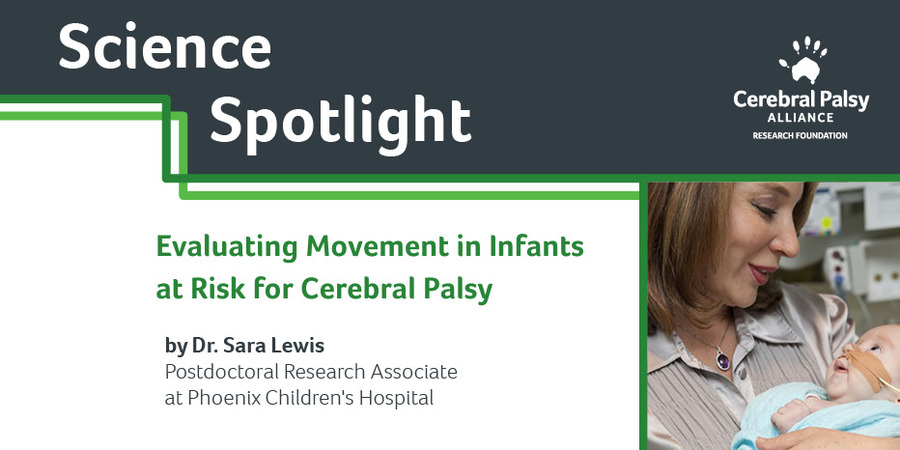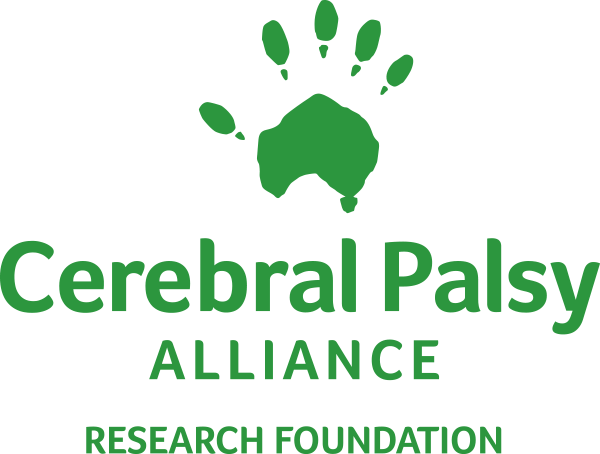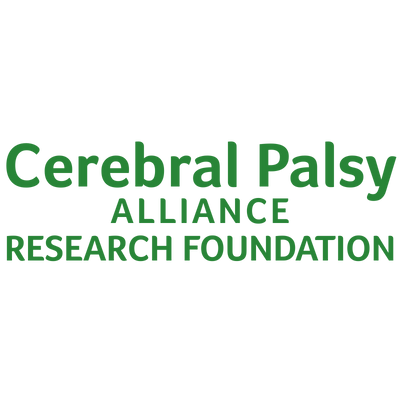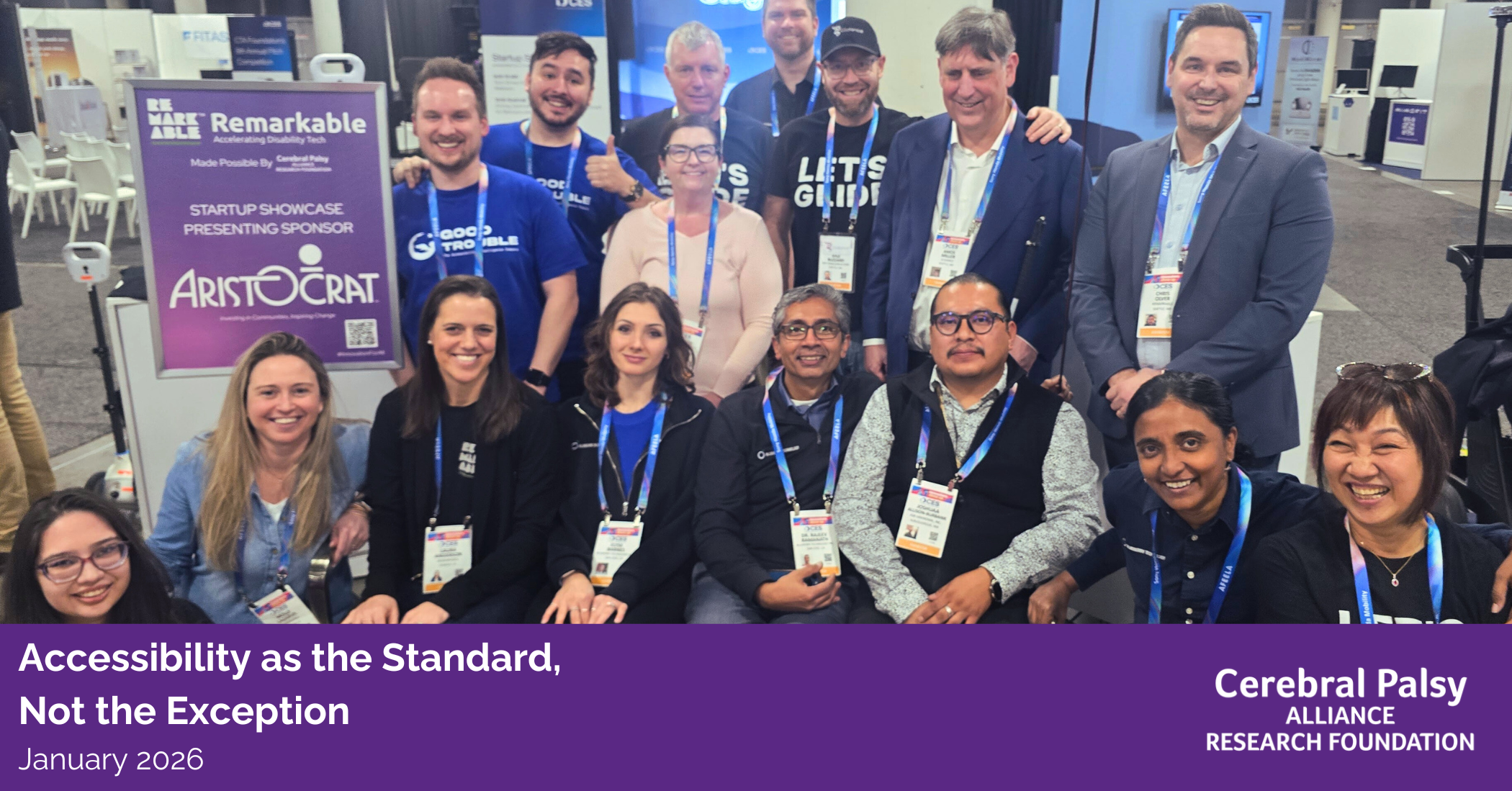
Cerebral Palsy Alliance Research Foundation proudly funds research to help people with cerebral palsy at every age and stage of life. The following Science Spotlight focuses on one of many projects we’ve recently supported.
Science Spotlight: Evaluating Movement in Infants at Risk for Cerebral Palsy
By Dr. Sara Lewis
Fidgety movements are spontaneous, variable movements present in infants 9 – 20 weeks post-birth. These are an important part of motor development, and fidgety movements that are sporadic, abnormal, or absent can predict cerebral palsy (CP) later in life. Therefore, capturing video of these movements for general movements assessment (GMA) by trained professionals can identify individuals who need neurological evaluation and imaging for early diagnosis. Early identification and diagnosis are crucial for starting interventions, such as physical therapy, and for encouraging use of the affected limbs as early as possible for the best outcomes.
How do you capture these movements for assessment? The answer might be smartphone-based recording and early movement apps. The Baby Moves smartphone app is particularly useful for telemedicine for rural areas or to support countries without access to resources such as specialists in early childhood movement disorders.
To use the app, a parent or clinician records the movements while the infant is lying down, awake, and not fussing. The infant needs to be wearing minimal clothing and not have toys or other objects in the way. The app assists with the capture of video with optimal parameters for successful GMA, and makes it easy to record and upload videos. Parents have responded positively to Baby Moves’ usability in follow-up surveys.
The Baby Moves app has been a valuable resource for research on CP and can integrate with tools used to collect research information, such as RedCap. These videos can easily be captured at set times to track the trajectory of development and the impact of different interventions.
Professor Spittle and Assistant Professor Peyton are currently studying whether videos collected using this app can be used to identify what types of abnormal movements are most predictive of future development of CP to improve specificity of this assessment for providing early diagnoses.
Cerebral Palsy Alliance Research Foundation has been supporting the continued development of and applications for the Baby Moves app, which is available for Android and Apple devices and in English, Italian, Arabic, and Spanish. There are several improvements that are being considered for development. These include providing feedback to make sure the recording is capturing the entire person, keying in on fussiness/crying, and improving data transfer, storage, and face blurring to make the app safer to use. The app could also be an important way to create a large data set of movement videos for research and development of additional tools.
Resources such as the Baby Moves app are an important part of the effort to make services and research more accessible to more families and provide earlier diagnosis to ensure earlier access to resources, therapies, and better outcomes for a larger proportion of children.

References Cited:
https://pubmed.ncbi.nlm.nih.gov/30288823/
https://arxiv.org/abs/2303.14699
Wed 11 Feb 2026
An update on one of our most important initiatives: expanding access to life-changing assistive technology for Native Americans with disabilities.
Fri 23 Jan 2026
An update on one of our most important initiatives: expanding access to life-changing assistive technology for Native Americans with disabilities.



